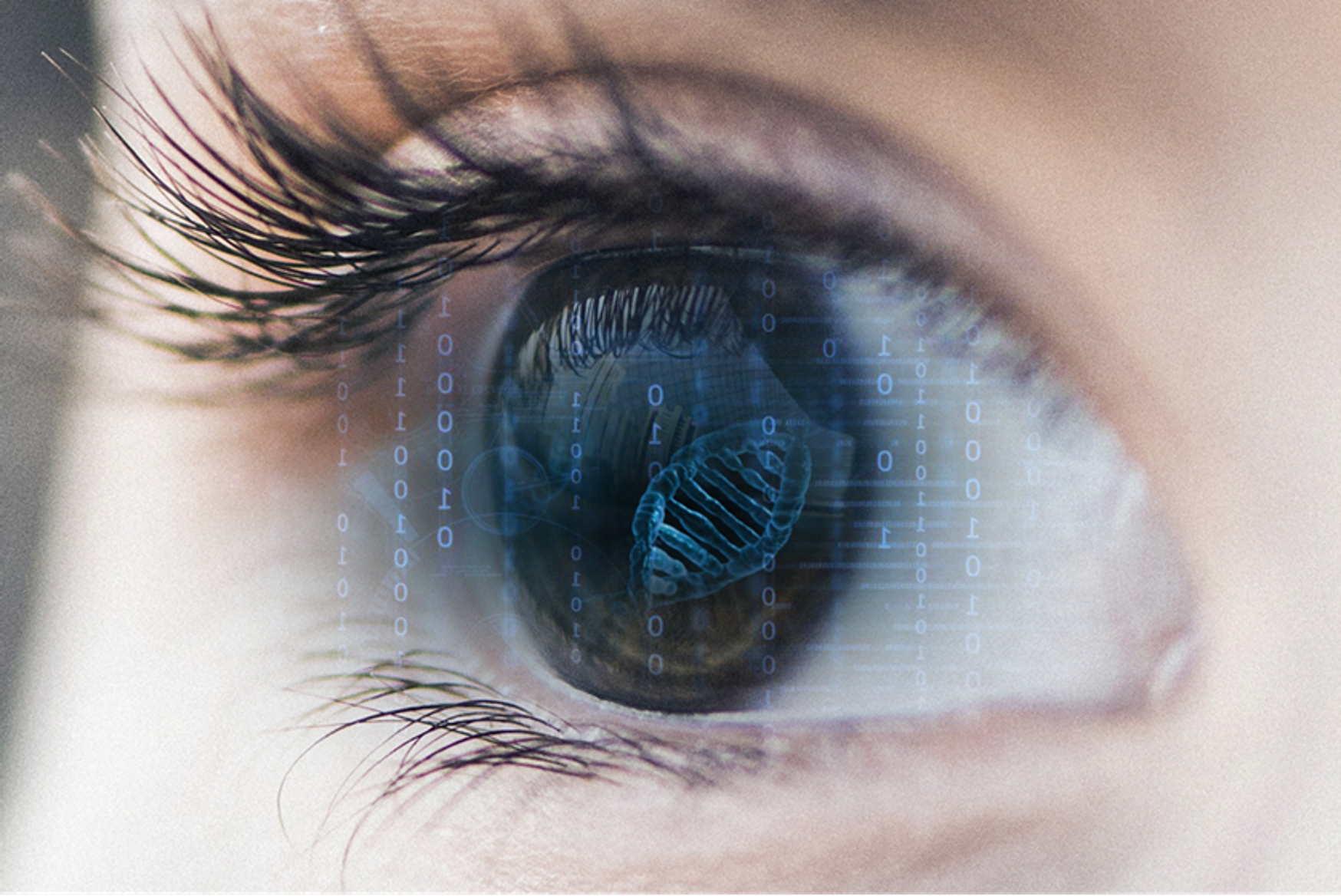Preservation of health does not only take place in hospitals, doctors' practices and rehabilitation facilities. Due to the digitalization of many processes citizens and patients inreasingly take over the responsibility for their own health care. In order to meet the demands of such self centered care it is important to early engage with all stakeholders of health care to foster an intensive dialogue and a collaborative research together with the patients and citizens. Building patient trust in future health technologies requires transparency, feedback, and human support for helping them to manage their daily medical needs. By trusting a digital platform, patients and citizens have an enormous toolbox to stay engaged in their personal care – the ultimate measure in trust. KARE will support this by building an environment based on responsibility and trust. Trust is highly fragile, when it comes to health care. It can only be manifested by closely interconnected, co-creative and cooperative research with patients, citizens and relevant stakeholders from practice and industry. All participants from research, industry and health care are well interlinked and communicate with the help of a secure and reliable data network. Data, e.g. of patients, can be accessed regardless of location, time and sector boundaries. Transformation processes will be initiated, accompanied and supported by socio-technical innovations (‘reallabs’). Additionally, in KARE research is accompanied by the analysis of ethical, social and legal aspects (e.g. consent models, anticipative governance, approval procedures).
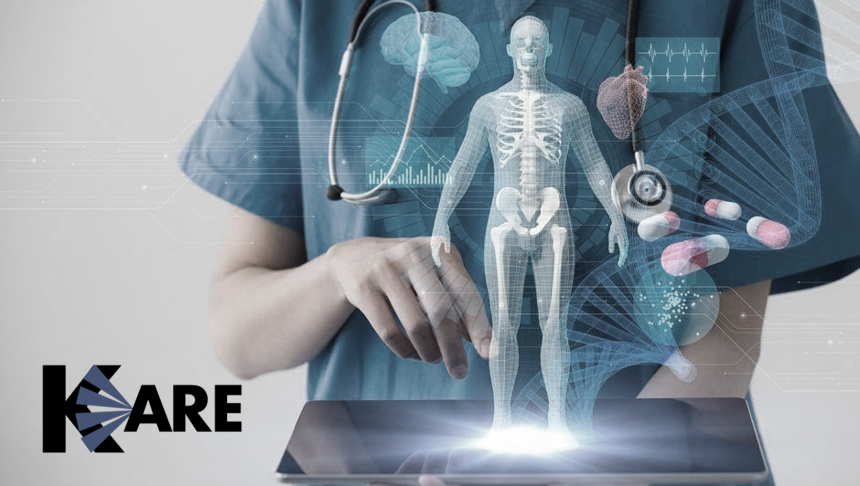
With this integrative and comprehensive approach, KARE enables the transition of digital applications into standard care and creates a unique link between research and the health system. Patients or healthy persons which enroll in the program will be supported by their physicians, elderly care units, child care, gyms, sport clubs etc. to provide data on their health state. This will be eventually used to design digital twins of a larger variety of individuals providing a unique dataset which allows for the simulation of health issues. Data will be anonymized and provided to the researchers from KITHealthTech to develop novel personalized technologies for future healthcare. This will not only lead to better resolutions when defining the health status of an individual patient but also change the expected image of a healthy patient (Personalized Care 2.0).
Our Clinical Partners
Clinic partners are involved in the development of new innovations in biomedical and health technologies, thus guaranteeing a connection to a clinical environment, which ensures close feedback on unsolved clinical problems and the applicability of the solutions developed. The individual clinics provide long-term expertise as contractual cooperation partners.
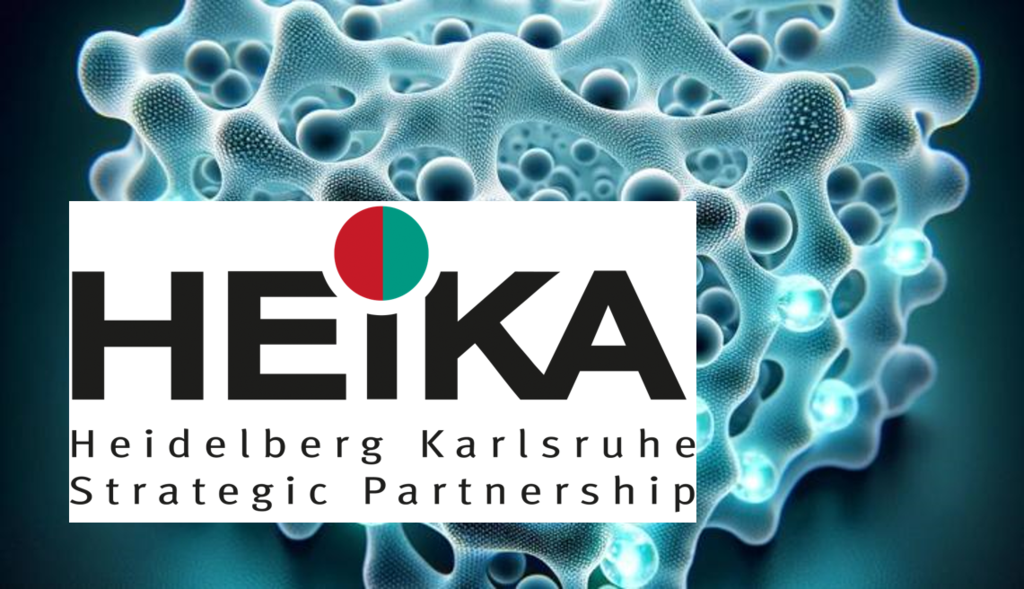
Launched in May 2018, the Heidelberg Karlsruhe Strategic Partnership encompasses all joint bilateral activities of KIT and Heidelberg University. The focus of the collaboration is on research, teaching, innovation and promotion of young talent. HEIKA is focussing on 7 research bridges. The focus of the research bridge "Medical Technology for Health (MTH)" is the integration and synergy of knowledge from engineering and medical / clinical research to develop medical devices, systems and software for the prevention and (early) diagnosis of diseases for better therapy stratification. We interpret “medical engineering for health” as being the application of knowledge from the areas of engineering sciences, molecular basic research and bioinformatics in the field of medicine. Consequently, knowledge from these areas is combined with medical expertise aiming at better diagnostics, therapy and therapeutic management of patients. This is comprising research and development of new diagnostic methods, medical devices, systems, algorithms and software, prostheses and implants for recognition, prevention, monitoring, treatment or relief of diseases, injury and disabilities.
Link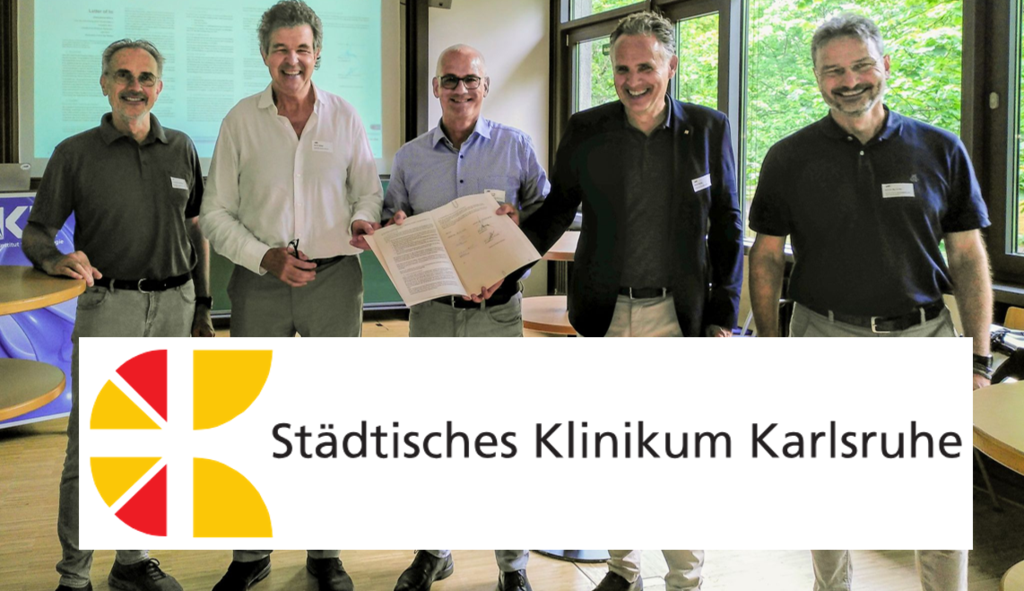
Medicine meets technology: Strategic cooperation between Städtisches Klinikum Karlsruhe gGmbH and Karlsruhe Institute of Technology (KIT) has been launched. Back in July, KIT and Städtisches Klinikum Karlsruhe (SKK) aggreed on the vision of a joint medical technology campus with a "Letter of Intent" (LOI). At a subsequent workshop, joint ideas were developed and concretized. The cooperation marks a significant step in the integration of research and practice: the Hashtag#Medical Engineering degree course will become even more attractive as a result of the cooperation. Students will benefit from excursions to the Municipal Hospital, Hashtag #research collaborations, an extensive range of courses and a fully equipped teaching OR. Hashtag #SKK, in turn, is expanding its collaboration with universities through this cooperation. In this way, new insights gained at KIT can be incorporated into the work at the clinic.
Link
Since March 2024 KIT is preparing a partnership with the Freiburg University Medical Center to forster a strong medical interaction between the two universities and the Städtisches Klinikum Karlsruhe, which is a "Lehrkrankenhaus" of Freiburg. The interaction will be on medical engineering and informatics in neuroscience and heart and vascular pathologies. Several interactions led to new collaborative initiatives and publications.
Link
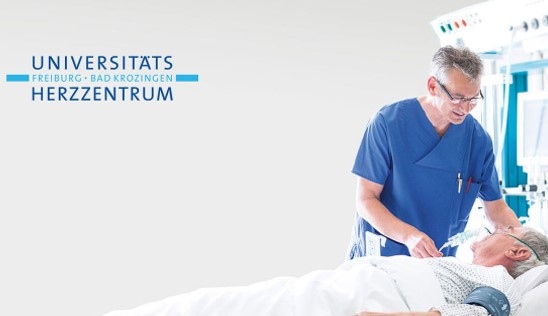
KIT's Institute of Biomedical Engineering has a long-standing collaboration with the University Heart Center Freiburg Bad Krozingen. Advanced clinical data science and artificial intelligence on electrocardiograms and intracardiac electrograms are combined with biophysically detailed computational modeling & simulation. The successful joint efforts have led to more than a dozen publications in renowned clinical and technical journals. Calculated from clinical data multi-scale digital twins are designed to recapitulate heart rythm pathologies.
Link
Göttingen is an internationally renowned heart research center. Scientists and clinical researchers are equally represented at the Heart Research Center Göttingen. The Heart Center of the University Medical Center Göttingen, natural science faculties of the Georg-August University, the Max Planck Institute (MPI) for Experimental Medicine, the MPI for Biophysical Chemistry, the MPI for Dynamics and Self-Organization and the German Primate Center (DPZ) are cooperating here. KIT has recently teamed up with the Heart Research Center to start a collaborative initiative using our autonomous self-driving labs for the production and standardization of a patient derived fibrotic heart organoid model, which also involves the collaboration with clinicians from Freiburg, the Stanford University and the Scripps Institute, both USA. KIT is also heavily interacting with the Translational Molecular Imaging unit, which is based at the UMG, Department of Haematology and Medical Oncology and Institute of Diagnostic and Interventional Radiology, as well as at the Max Planck Institute for Multidisciplinary Natural Sciences.
Link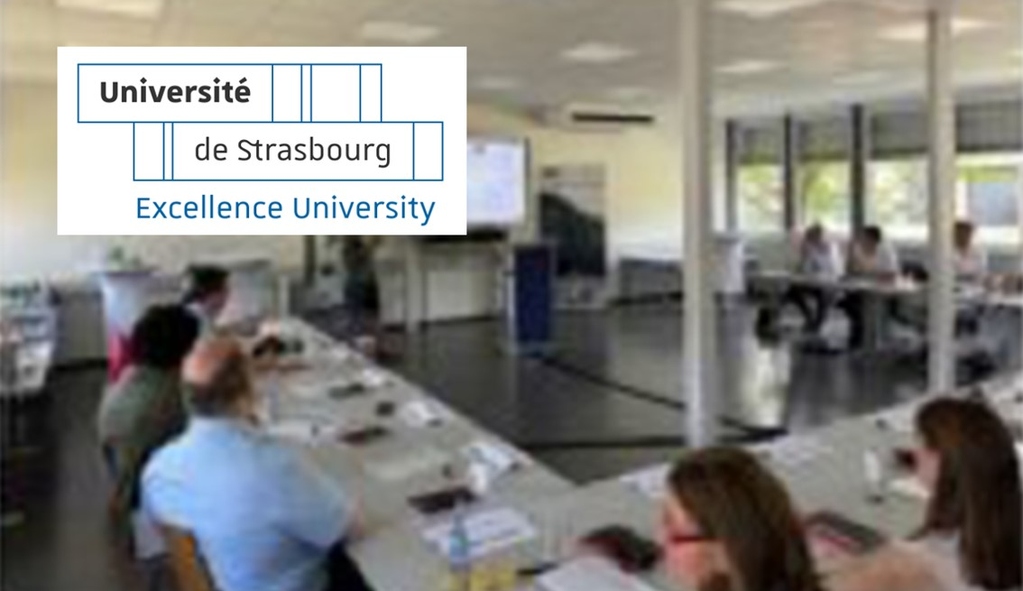
The University Strasbourg Medical Center is strongly connected to KIT by their several collaborative initiatives such as the European University EPICIUR and the EUCOR program in the upper rhine area which both unites als also the clinics and medical centers in this region with several universities. Many projects and collaborative initiatives between the project partners are funded on immunology and cancer. EPICUR’s initial priority areas Sustainable transformation, European values, Global health and Future intelligence. Such an endeavour requires interdisciplinary approaches and strong connections with regional academic and socio-economic ecosystems. EPICUR therefore must create a polycentric network of mutually empowering regional knowledge hubs future-proofed for tackling these global challenges.
Link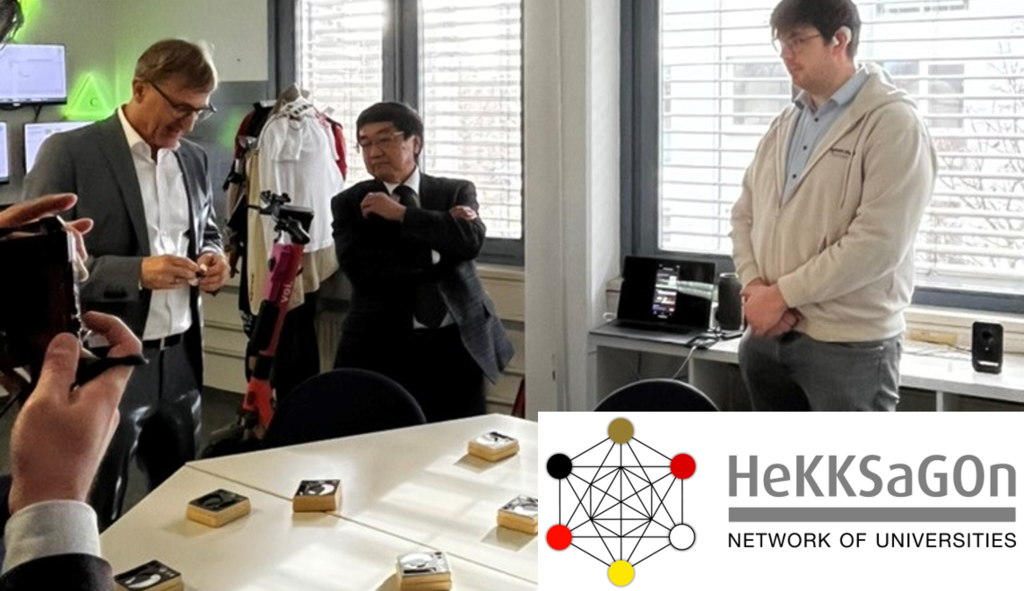
The German-Japanese University Network (HeKKSaGOn) was founded in 2010 to strengthen international cooperation in education, research, and innovation between six leading research-intensive universities in Germany and Japan. The network promotes high-quality teaching in globally competitive environments and fosters exchange across science, technology, industry, and culture. Within the joint project Robotics for Health, Well-being, Safe and Resilient Societies, HeKKSaGOn advances robotics as an interdisciplinary field spanning mechanics, electronics, computer science, AI, biomedical engineering, and neuroscience. Robotics is essential for improving health, safety, and quality of life, with applications from assistive robots for the elderly and disabled to remote systems for hazardous environments such as disaster zones, mining, and space. Coupled with AI and machine learning, robotics enables intelligent motion, safe interaction over distance, and resilience in crises such as COVID-19. In discussions with partners from Kyoto University, we also explored synergies on our openEarable platform.
Link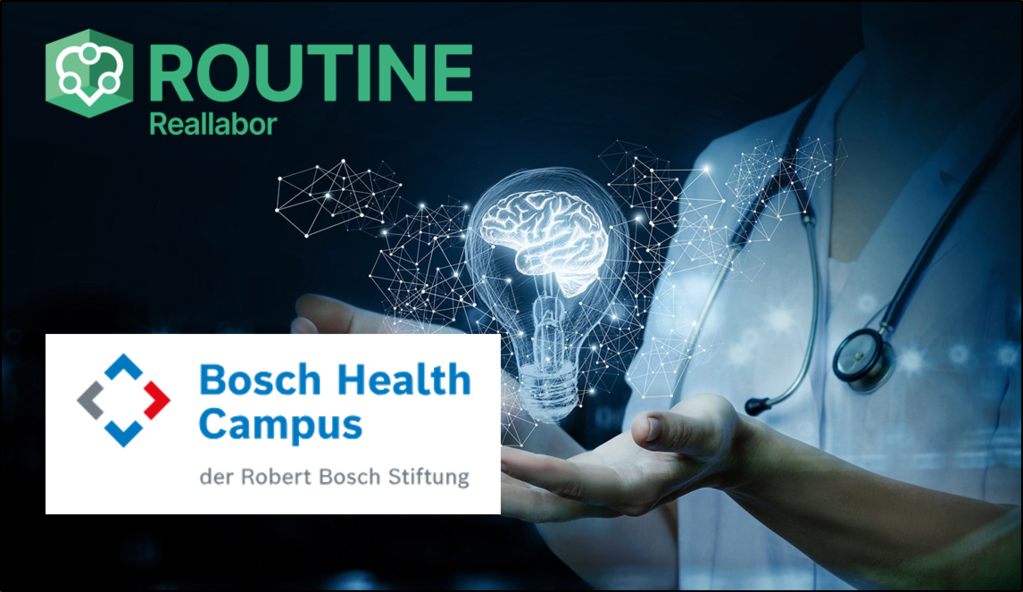
The Robert Bosch Hospital is part of the Living Lab " AI in Health" at the FZI, Karlsruhe. Leading PIs from the living lab are members of the KIT such as the spokesperson Prof. Willi Stork. This initiative was funde in 2023 and comprises also the Robert Bosch Hospital and the Diakonie. The Robert Bosch Hospital is included in the state hospital plan and is therefore a private foundation hospital funded by the state. Since 1978, the Robert Bosch Hospital has been one of the academic teaching hospitals of the University of Tübingen. With 1,041 beds, it and the Charlottenhaus Clinic in Stuttgart admit up to 40,000 inpatients a year. Around 3,000 employees ensure that patients feel individually cared for. This enables the RBK to provide data and test subjects for evaluations.
Link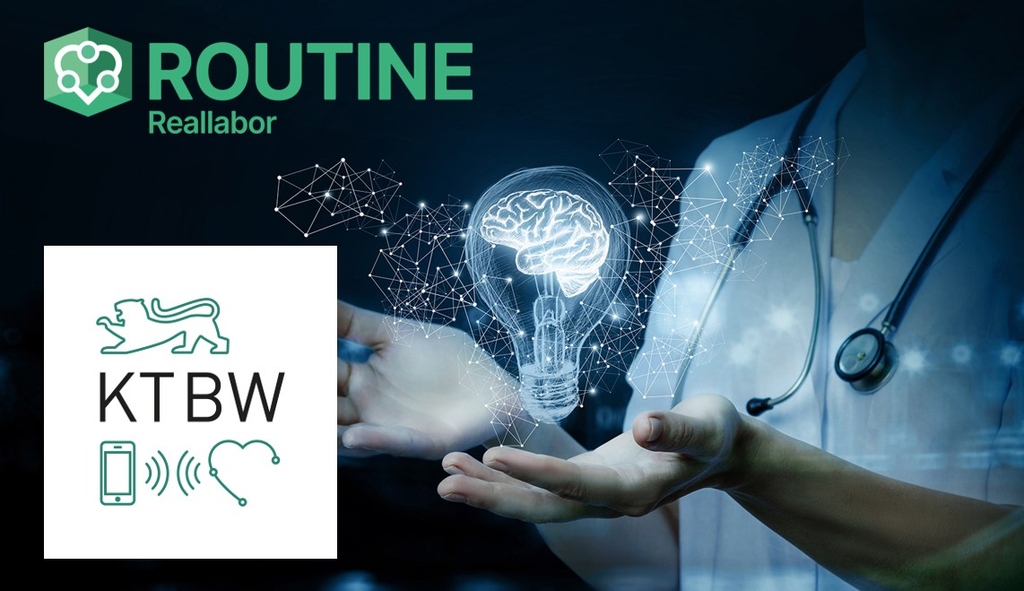
Beiing also a prtner in the Living Lab Routine the Baden-Württemberg Telemedicine Coordination Office is the central point of contact for all matters relating to telemedicine and digital media in the state. Its task is to network the various interests and expertise in the field of digital medicine in Baden-Württemberg. In order to fulfill this networking function efficiently, the KTBW is integrated into the structures of the Center for Preventive Medicine and Digital Health (CPD) at the Mannheim Medical Faculty of Heidelberg University under the direction of Prof. Dr. Oliver G. Opitz. It acts as a networking platform and catalyst for digital medicine projects and innovative healthcare approaches in and from Baden-Württemberg in order to transfer such approaches to healthcare in a structured manner and at the same time evaluate them scientifically.
Link
KIT researchers are working with the Michigan Medical School, Ann Arbor on novel strategies to address the current challenges in the applications of nanoparticles for drug & gene delivery by leveraging the electrohydrodynamic (EHD) jetting. Through EHD jetting, we produce protein nanoparticles to leverage their favorable properties such biodegradability, nonantigenicity, metabolizability, favorable in vivo clearance profiles, and high degree of chemical modification capabilities for various therapeutic applications. In addition,they employ hydrodynamically-induced fibrillogenesis of fibronectin to fabricate and engineer protein substrates for various tissue regenerations, and investigate various way to incorporate extracellular matrix proteins to model the in-vivo characteristics of cellular environment. The main motivation stems from the scarcity of human tissue samples as well as the poor regenerative capacity of the human heart that plagues the development of efficacious treatment and therapeutics for cardiovascular diseases when compared to all other human organs.
Link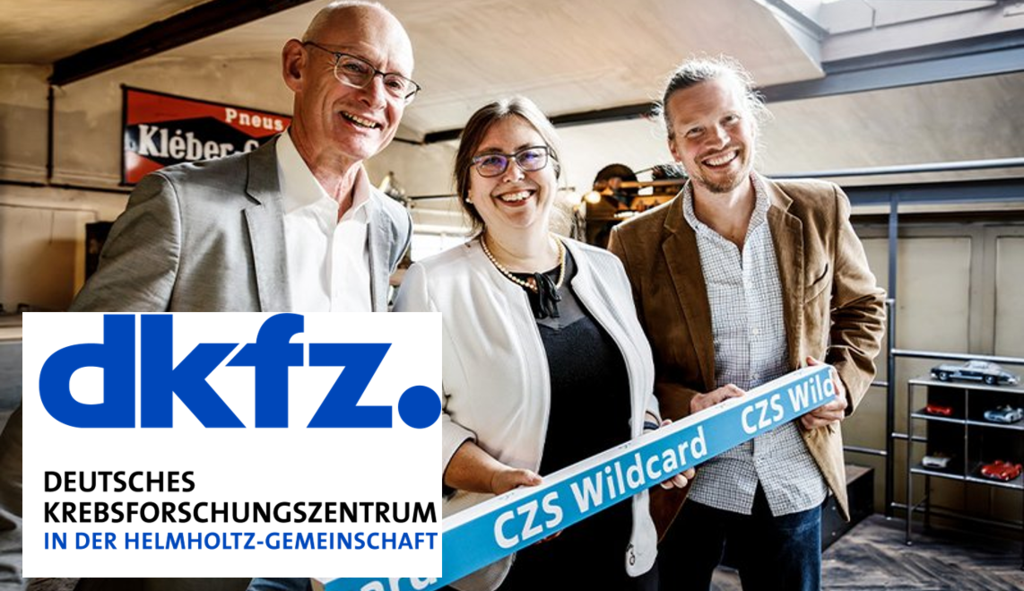
Innovative, light-driven mechanisms for electron acceleration reduce the size of the accelerators by more than 1,000 times from meters to (sub)millimeters. This means that the ultra-compact electron accelerators can be inserted into the body using minimally invasive endoscopy and electron beams are generated directly in the body close to the tumor. This enables high-precision treatment while sparing healthy tissue. KIT and DKFZ researchers are creating low-cost, ultra-compact radiotherapy devices that can be operated in a similar way to X-ray machines and that are widely used in medical facilities. This would enable precise, personalized and less damaging cancer treatments and make them available to a greater number of patients, from local medical practices to developing countries.
LinkSelected Publications
HEIKA Alliance
Zenk M, et. al. Towards fair decentralized benchmarking of healthcare AI algorithms with the Federated Tumor Segmentation (FeTS) challenge. Nat Commun. 2025 Jul 8;16(1):6274. doi: 10.1038/s41467-025-60466-1. PMID: 40628696; PMCID: PMC12238412.
Cairns JL, Huber J, Lewen A, Jung J, Maurer SJ, Bausbacher T, Schmidt S, Levkin PA, Sevin D, Göpfrich K, Koch P, Kann O, Hopf C. Mass-Guided Single-Cell MALDI Imaging of Low-Mass Metabolites Reveals Cellular Activation Markers. Adv Sci (Weinh). 2025 Feb;12(5):e2410506. doi: 10.1002/advs.202410506. Epub 2024 Dec 12. PMID: 39665230; PMCID: PMC11791930.
Caldarelli P, Deininger L, Zhao S, Panda P, Yang C, Mikut R, Zernicka-Goetz M. AI-based approach to dissect the variability of mouse stem cell-derived embryo models. Nat Commun. 2025 Feb 19;16(1):1772. doi: 10.1038/s41467-025-56908-5. PMID: 39971935; PMCID: PMC11839995.
Althoff TF, Anderson RH, Goetz C, Petersen SE, Díaz PM, Nijveldt R, Maurovich-Horvat P, Bax J, Hussain S, Schmidt C, Spicer DE, Sanchez-Quintana D, Corsi C, Dössel O, Climent AM, Rodriguez B, Schotten U, Loewe A, Guillem MS, Cabrera JÁ, Merino JL, Wijnmaalen AP, Bertrand PB, de Groot N, Derval N, Didenko M, Donal E, Dweck MR, Ho SY. Regionalization of the atria for 3D electroanatomical mapping, cardiac imaging, and computational modelling: a clinical consensus statement of the European Heart Rhythm Association and the European Association of Cardiovascular Imaging of the ESC. Europace. 2025 Jul 1;27(7):euaf134. doi: 10.1093/europace/euaf134. PMID: 40736086; PMCID: PMC12308486.
Woll S, Birkenmaier D, Biri G, Nissen R, Lutz L, Schroth M, Ebner-Priemer UW, Giurgiu M. Applying AI in the Context of the Association Between Device-Based Assessment of Physical Activity and Mental Health: Systematic Review. JMIR Mhealth Uhealth. 2025 Mar 6;13:e59660. doi: 10.2196/59660. PMID: 40053765; PMCID: PMC11926455.
Li J, Zhou Zet al. J. MedShapeNet - a large-scale dataset of 3D medical shapes for computer vision. Biomed Tech (Berl). 2024 Dec 30;70(1):71-90. doi: 10.1515/bmt-2024-0396. PMID: 39733351.
Baumann H, Singh B, Staiano AE, Gough C, Ahmed M, Fiedler J, Timm I, Wunsch K, Button A, Yin Z, Vasiloglou MF, Sivakumar B, Petersen JM, Dallinga J, Huong C, Schoeppe S, Kracht CL, Spring K, Maher C, Vandelanotte C. Effectiveness of mHealth interventions targeting physical activity, sedentary behaviour, sleep or nutrition on emotional, behavioural and eating disorders in adolescents: a systematic review and meta-analysis. Front Digit Health. 2025 Jul 21;7:1593677. doi: 10.3389/fdgth.2025.1593677. PMID: 40761810; PMCID: PMC12318977.
Akinci D'Antonoli T, Berger LK, Indrakanti AK, Vishwanathan N, Weiss J, Jung M, Berkarda Z, Rau A, Reisert M, Küstner T, Walter A, Merkle EM, Boll DT, Breit HC, Nicoli AP, Segeroth M, Cyriac J, Yang S, Wasserthal J. TotalSegmentator MRI: Robust Sequence-independent Segmentation of Multiple Anatomic Structures in MRI. Radiology. 2025 Feb;314(2):e241613. doi: 10.1148/radiol.241613. PMID: 39964271.
Amaral AVR, Wolffram D, Moraga P, Bracher J. Post-processing and weighted combination of infectious disease nowcasts. PLoS Comput Biol. 2025 Mar 3;21(3):e1012836. doi: 10.1371/journal.pcbi.1012836. PMID: 40029911; PMCID: PMC11902281.
Freiburg Medical Center
Simon-Chica A, Loewe A, Kohl P. Models of cardiomyocyte-non-myocyte electrical interactions. J Physiol. 2025 Jul 1. doi: 10.1113/JP287295. Epub ahead of print. PMID: 40591686.
Ates HC, Alshanawani A, Hagel S, Cotta MO, Roberts JA, Dincer C, Ates C. Unraveling the impact of therapeutic drug monitoring via machine learning for patients with sepsis. Cell Rep Med. 2024 Aug 20;5(8):101681. doi: 10.1016/j.xcrm.2024.101681. Epub 2024 Aug 9. PMID: 39127039; PMCID: PMC11384951.
Atinbayeva N, Valent I, Zenk F, Loeser E, Rauer M, Herur S, Quarato P, Pyrowolakis G, Gomez-Auli A, Mittler G, Cecere G, Erhardt S, Tiana G, Zhan Y, Iovino N. Inheritance of H3K9 methylation regulates genome architecture in Drosophila early embryos. EMBO J. 2024 Jul;43(13):2685-2714. doi: 10.1038/s44318-024-00127-z. Epub 2024 Jun 3. PMID: 38831123; PMCID: PMC11217351.
Martínez Díaz P, Sánchez J, Fitzen N, Ravens U, Dössel O, Loewe A. The right atrium affects in silico arrhythmia vulnerability in both atria. Heart Rhythm. 2024 Jun;21(6):799-805. doi: 10.1016/j.hrthm.2024.01.047. Epub 2024 Jan 30. PMID: 38301854.
Apweiler M, Saliba SW, Sun L, Streyczek J, Normann C, Hellwig S, Bräse S, Fiebich BL. Modulation of neuroinflammation and oxidative stress by targeting GPR55 - new approaches in the treatment of psychiatric disorders. Mol Psychiatry. 2024 Dec;29(12):3779-3788. doi: 10.1038/s41380-024-02614-5. Epub 2024 May 25. PMID: 38796643; PMCID: PMC11609097.
Sun L, Apweiler M, Normann C, Grathwol CW, Hurrle T, Gräßle S, Jung N, Bräse S, Fiebich BL. Anti-Inflammatory Effects of GPR55 Agonists and Antagonists in LPS-Treated BV2 Microglial Cells. Pharmaceuticals (Basel). 2024 May 24;17(6):674. doi: 10.3390/ph17060674.
Kabay G, DeCastro J, Altay A, Smith K, Lu HW, Capossela AM, Moarefian M, Aran K, Dincer C. Emerging Biosensing Technologies for the Diagnostics of Viral Infectious Diseases. Adv Mater. 2022 Jul;34(30):e2201085. doi: 10.1002/adma.202201085. Epub 2022 Apr 5. PMID: 35288985.
Burchak V, Koch F, Siebler L, Haase S, Horner VK, Kempter X, Stark GB, Schepers U, Grimm A, Zimmermann S, Koltay P, Strassburg S, Finkenzeller G, Simunovic F, Lampert F. Evaluation of a Novel Thiol-Norbornene-Functionalized Gelatin Hydrogel for Bioprinting of Mesenchymal Stem Cells. Int J Mol Sci. 2022 Jul 19;23(14):7939. doi: 10.3390/
Apweiler M, Streyczek J, Saliba SW, Collado JA, Hurrle T, Gräßle S, Muñoz E, Normann C, Hellwig S, Bräse S, Fiebich BL. Functional Selectivity of Coumarin Derivates Acting via GPR55 in Neuroinflammation. Int J Mol Sci. 2022 Jan 16;23(2):959. doi: 10.3390/ijms23020959. PMID: 35055142; PMCID: PMC8779649.
Zhang W, Rau S, Kotzagiorgis K, Rothweiler R, Nahles S, Gottwald E, Rolauffs B, Steinberg T, Nelson K, Altmann B. A matter of origin - identification of SEMA3A, BGLAP, SPP1 and PHEX as distinctive molecular features between bone site-specific human osteoblasts on transcription level. Front Bioeng Biotechnol. 2022 Sep 28;10:918866. doi: 10.3389/fbioe.2022.918866. PMID: 36246375; PMCID: PMC9554416.
Zhang W, Rau S, Kotzagiorgis K, Rothweiler R, Nahles S, Gottwald E, Rolauffs B, Steinberg T, Nelson K, Altmann B. A matter of origin - identification of SEMA3A, BGLAP, SPP1 and PHEX as distinctive molecular features between bone site-specific human osteoblasts on transcription level. Front Bioeng Biotechnol. 2022 Sep 28;10:918866. doi: 10.3389/fbioe.2022.918866. PMID: 36246375; PMCID: PMC9554416.
Loewe A, Wülfers EM, Seemann G. Cardiac ischemia-insights from computational models. Herzschrittmacherther Elektrophysiol. 2018 Mar;29(1):48-56. English. doi: 10.1007/s00399-017-0539-6. Epub 2018 Jan 5. PMID: 29305703.
University Hospital Bad Krotzingen
Jadidi A, Loewe A. ECG-based stroke prediction in patients with atrial fibrillation-Time to exploit the ECG! Heart Rhythm. 2024 Dec;21(12):2419-2421. doi: 10.1016/j.hrthm.2024.09.050. Epub 2024 Sep 25. PMID: 39332753.
Loewe A, Jadidi A. Atrial arrhythmogenic substrate assessment: Is seeing always knowing? J Cardiovasc Electrophysiol. 2023 Feb;34(2):313-314. doi: 10.1111/jce.15792. Epub 2022 Dec 29. PMID: 36571156.
Azzolin L, Eichenlaub M, Nagel C, Nairn D, Sánchez J, Unger L, Arentz T, Westermann D, Dössel O, Jadidi A, Loewe A. AugmentA: Patient-specific augmented atrial model generation tool. Comput Med Imaging Graph. 2023 Sep;108:102265. doi: 10.1016/j.compmedimag.2023.102265. Epub 2023 Jun 15. PMID: 37392493.
Huang T, Nairn D, Chen J, Mueller-Edenborn B, Pilia N, Mayer L, Eichenlaub M, Moreno-Weidmann Z, Allgeier J, Trenk D, Ahlgrim C, Westermann D, Arentz T, Loewe A, Jadidi A. Structural and electrophysiological determinants of atrial cardiomyopathy identify remodeling discrepancies between paroxysmal and persistent atrial fibrillation. Front Cardiovasc Med. 2023 Jan 11;9:1101152. doi: 10.3389/fcvm.2022.1101152. PMID: 36712269; PMCID: PMC9874680.
Plank G, Loewe A, Neic A, Augustin C, Huang YL, Gsell MAF, Karabelas E, Nothstein M, Prassl AJ, Sánchez J, Seemann G, Vigmond EJ. The openCARP simulation environment for cardiac electrophysiology. Comput Methods Programs Biomed. 2021 Sep;208:106223. doi: 10.1016/j.cmpb.2021.106223. Epub 2021 Jun 8. PMID: 34171774.
Göttingen University Medical Center
Sokke Rudraiah P, Herbsleb L, Salakova M, Gröger H, Steyer AM, Alves F, Feldmann C, Walter A. Combining Correlative Cryogenic Fluorescence and Electron Microscopy and Correlative Cryogenic Super-Resolution Fluorescence and X-Ray Tomography-Novel Complementary 3D Cryo-Microscopy Across Scales to Reveal Nanoparticle Internalization Into Cancer Cells. Microsc Res Tech. 2025 Sep 1. doi: 10.1002/jemt.70071. Epub ahead of print. PMID: 40887945.
Rudolph D, Ischyropoulou M, Pfeifer J, Napp J, Schepers U, Alves F, Feldmann C. Cocktail of lipophilic and hydrophilic chemotherapeutics in high-load core@shell nanocarriers to treat pancreatic tumours. Nanoscale Adv. 2024 Jan 2;6(3):973-984. doi: 10.1039/d3na00720k. PMID: 38298597; PMCID: PMC10825944.
Reitenbach A, Sartori F, Banisch S, Golovin A, Calero Valdez A, Kretzschmar M, Priesemann V, Mäs M. Coupled infectious disease and behavior dynamics. A review of model assumptions. Rep Prog Phys. 2024 Dec 16;88(1). doi: 10.1088/1361-6633/ad90ef. PMID: 39527845.
Khorenko M, Pfeifer J, Napp J, Meschkov A, Alves F, Schepers U, Feldmann C. Theranostic inorganic-organic hybrid nanoparticles with a cocktail of chemotherapeutic and cytostatic drugs. J Mater Chem B. 2023 Apr 26;11(16):3635-3649. doi: 10.1039/d3tb00226h. PMID: 37017673.
Notter S, Choezom D, Griebel T, Ramos-Gomes F, Möbius W, De Oliveira T, Conradi LC, Alves F, Feldmann C. High-Load Core@Shell Nanocarriers with Irinotecan and 5-Fluorouracil for Combination Chemotherapy in Colorectal Cancer. Small Sci. 2024 Aug 19;4(11):2400196. doi: 10.1002/smsc.202400196. PMID: 40213458; PMCID: PMC11935085.
Steyer J, Lilienkamp T, Luther S, Parlitz U. The role of pulse timing in cardiac defibrillation. Front Netw Physiol. 2023 Jan 4;2:1007585. doi: 10.3389/fnetp.2022.1007585. PMID: 36926106; PMCID: PMC10013017.
Asfaw KG, Liu Q, Eghbalian R, Purper S, Akaberi S, Dhakarey R, Münch SW, Wehl I, Bräse S, Eiche E, Hause B, Bogeski I, Schepers U, Riemann M, Nick P. The jasmonate biosynthesis Gene OsOPR7 can mitigate salinity induced mitochondrial oxidative stress. Plant Sci. 2022 Mar;316:111156. doi: 10.1016/j.plantsci.2021.111156. Epub 2021 Dec 13. PMID: 35151439.
Lei W, Deckers A, Luchena C, Popova A, Reischl M, Jung N, Bräse S, Schwartz T, Krimmelbein IK, Tietze LF, Levkin PA. Droplet Microarray as a Powerful Platform for Seeking New Antibiotics Against Multidrug-Resistant Bacteria. Adv Biol (Weinh). 2022 Dec;6(12):e2200166. doi: 10.1002/adbi.202200166. Epub 2022 Jul 17. PMID: 35843867.
Klems A, van Rijssel J, Ramms AS, Wild R, Hammer J, Merkel M, Derenbach L, Préau L, Hinkel R, Suarez-Martinez I, Schulte-Merker S, Vidal R, Sauer S, Kivelä R, Alitalo K, Kupatt C, van Buul JD, le Noble F. The GEF Trio controls endothelial cell size and arterial remodeling downstream of Vegf signaling in both zebrafish and cell models. Nat Commun. 2020 Oct 21;11(1):5319. doi: 10.1038/s41467-020-19008-0. PMID: 33087700; PMCID: PMC7578835.
Kaiser TK, Khorenko M, Moussavi A, Engelke M, Boretius S, Feldmann C, Reichardt HM. Highly selective organ distribution and cellular uptake of inorganic-organic hybrid nanoparticles customized for the targeted delivery of glucocorticoids. J Control Release. 2020 Mar 10;319:360-370. doi: 10.1016/j.jconrel.2020.01.010. Epub 2020 Jan 7. PMID: 31923534.
Kaiser TK, Li H, Roßmann L, Reichardt SD, Bohnenberger H, Feldmann C, Reichardt HM. Glucocorticoids delivered by inorganic-organic hybrid nanoparticles mitigate acute graft-versus-host disease and sustain graft-versus-leukemia activity. Eur J Immunol. 2020 Aug;50(8):1220-1233. doi: 10.1002/eji.201948464. Epub 2020 Mar 20. PMID: 32133644.
Asfaw KG, Liu Q, Xu X, Manz C, Purper S, Eghbalian R, Münch SW, Wehl I, Bräse S, Eiche E, Hause B, Bogeski I, Schepers U, Riemann M, Nick P. A mitochondria-targeted coenzyme Q peptoid induces superoxide dismutase and alleviates salinity stress in plant cells. Sci Rep. 2020 Jul 14;10(1):11563. doi: 10.1038/s41598-00-68491-4. PMID: 32665569; PMCID: PMC7360622.
Heck JG, Napp J, Simonato S, Möllmer J, Lange M, Reichardt HM, Staudt R, Alves F, Feldmann C. Multifunctional phosphate-based inorganic-organic hybrid nanoparticles. J Am Chem Soc. 2015 Jun 17;137(23):7329-36. doi: 10.1021/jacs.5b01172. Epub 2015 Jun 8. PMID: 26018463.

